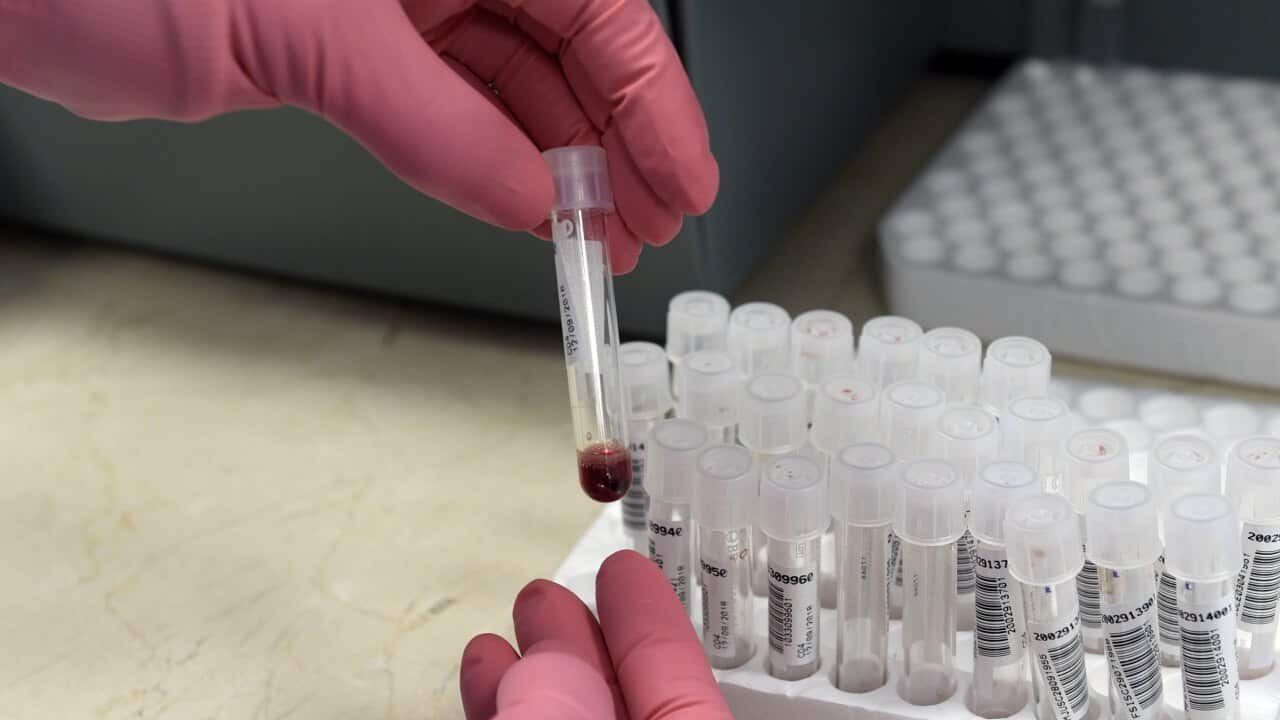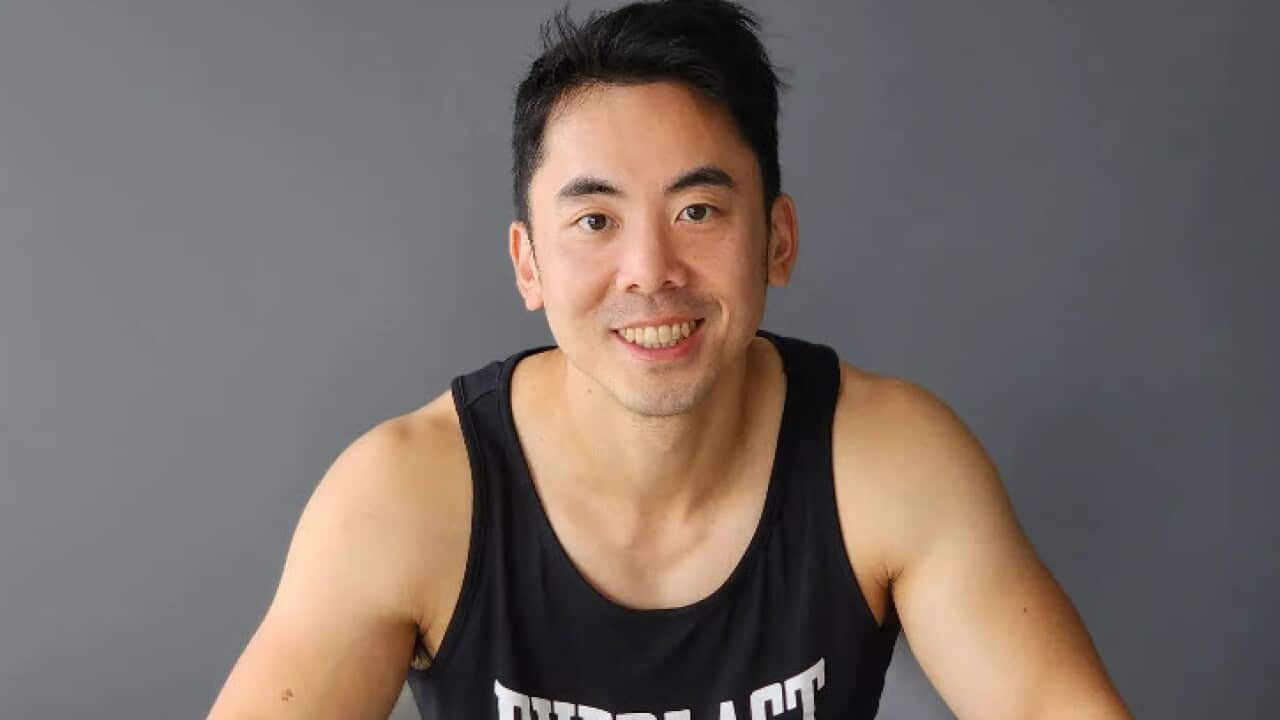Watch SBS Insight's episode on Betrayal – and its devastating impacts - on Tuesday at 8.30pm on SBS or live on SBS On Demand.
Stream free On Demand

Betrayal
episode • Insight • Current Affairs • 52m
episode • Insight • Current Affairs • 52m
Six months after Jordan Sloan broke up with his partner, a friend made contact to tell him his ex-boyfriend had been spreading stories about him.
“He had told people that I had Hep C and he had seen paperwork in my house, which obviously I knew was not correct,” Jordan said.
Despite knowing it wasn’t true, Jordan decided to get a blood test. And when the results came back, it wasn’t Hepatitis C that was the concern.
“I got a diagnosis of HIV positive,” he told Insight.
Shocked and confused, Jordan immediately contacted his former partner and urged him to get tested but he says he kept stalling.
“He repeated stories: 'I've been really busy, too busy to go get tested' or 'I've got tested, but the results were negative'. And I'm like: 'I need to see some paperwork'."
Months later, his ex-partner finally had a blood test, which showed he had AIDS.
“Viral load was in the millions, so it was very late stage," Jordan said.
It was then that Jordan realised the betrayal.

Despite his partner not revealing his HIV diagnosis, Jordan says he still cares "deeply" about him. Source: Supplied
"I don't know if he had known the entire eight to 10 years, or if it had only been a couple of years,” he told Insight.
“[But] that's somebody that I still care for deeply.”
'I felt like such a fool'
Melbourne mum Kylie Willey was also shocked when she was diagnosed with lymphoblastic lymphoma, a rare form of cancer, in April 2014.
“I felt completely betrayed. I was in such shock that for the first three weeks having appointments with the doctors, I kept saying: 'you must be wrong',” Kylie told Insight.
At the time, the 46-year-old was a personal trainer and in the best shape of her life.
“I can't have cancer, I'm too healthy. I do all the right things," she said.
It was during Kylie's brutal 18-month treatment plan, which included daily chemotherapy, that she experienced a very different betrayal.

When she had cancer, Kylie Willey says she came close to following the advice of convicted scammer and pseudoscience advocate Belle Gibson and giving up her treatment. Source: Supplied
She had also authored a book, published by Penguin, and had a successful app featured by Apple.
“I thought maybe I've been sucked into big pharma and listening to the doctors and going through chemo, when I just needed to eat clean and cure myself that way," she said.
After months of following her, Kylie contacted Belle and donated to her fund, which was supposedly to raise money for brain cancer patients, and told others about Belle and her holistic way of managing her illness.
Kylie also came close to following Gibson’s advice and giving up her treatment.
“I would have died for sure,” she said.
After media scrutiny, in April 2015 Belle Gibson admitted she had lied about it all.
Kylie said: “When I realised she was a fraud, I was furious. I felt like such a fool because I believed it. I held her up on a pedestal because I thought that she had all the answers.
“I don’t just feel betrayed by her, I felt betrayed by Penguin. I felt betrayed by Apple. I felt betrayed by every media outlet that had put her in the spotlight that gave her credibility.”
Betrayal can feel like grief
Psychotherapist Shushann Movsessian says betrayal can take many forms and doesn’t necessarily have to be by someone you know.
She believes being betrayed can feel similar to grief.
“Something has died, whether it's a dream or a relationship has gone."
The psychotherapist says there are ways you can start the healing process after experiencing a betrayal.
“Start by grieving the loss ... the loss of something or someone we believed, trusted and valued, the loss of hope or a dream, or the loss of the person we were prior to the betrayal,” Shushann said.
She advises those who have betrayed others to apologise.
"Making repair can be a wake-up call around changing hurtful actions and behaviours and taking responsibility for our impact on others.”
Betrayal is the loss of something or someone we believed, trusted and valued, the loss of hope or a dream, or the loss of the person we were.Shushann Movsessian
But she added that there can be a positive element to betrayal: it can help to build resilience.
“A betrayal, if worked on, can be an opportunity to clear out what is not working in our lives and learn to build stronger foundations and clearer boundaries."
'You become a practiced liar'
Fred Rubinstein, 26, did not expect to betray those closest to him when he was introduced to gambling as a child.
At the age of nine, he remembers pulling the winning player card out of a hat in an Aussie rules competition.
“It lit my brain up like a Christmas tree,” Fred told Insight. “There were other little events, like someone giving me a scratchy inappropriately or a lottery ticket.”
Fred’s dad died when he was 13 and after finishing school, he received around a $220,000 inheritance.
With serious money on his hands, his gambling went from betting on Aussie rules and football games on the weekend to staying up all night during the week chasing his losses at the casino.
“I’d wake up at like 3pm or 4pm very depressed again, go to the pub or to dinner with my mates, bet on the horses and I lost control,” he told Insight.

Fred Rubinstein spent his $220,000 inheritance from his father on gambling. It was gone within a year. Source: Supplied
To feed his gambling addiction, he started borrowing money from friends and stealing from his mum.
“I would take her card to the ATM and use her pin, and take cash from her wallet. You become a practiced liar and thief.”
He ended up stealing $25,000 before his mum said she’d take drastic action.
“She said: 'if you do it again, I'll call the police and press charges against you for theft'," he said.
"That was the moment I decided to turn my life around."
It’s now been six-and-a-half years since Fred gambled and he says therapy has helped repair the relationship with his mum.
“I've rebuilt that trust with her, and we have a really amazing relationship now.”
'He was still the person I cared about'
The Kirby Institute estimated that there were 29,460 people living with HIV in Australia at the end of 2021.
But while an HIV diagnosis was once considered a death sentence, the development of HIV treatment means that's no longer the case. HIV-positive people now have a similar life expectancy to HIV-negative people, provided they are diagnosed in good time, have good access to medical care, and are able to adhere to their treatment.
“I myself am on injectable treatments every two months. I get two injections, and I'm good for another two months. So it doesn't really affect my life outside of that,” Jordan said.
He says the psychological impact of the betrayal is far greater.
“He was still the person I cared about the most, you know.
"We had developed something beyond a friendship, beyond the partnership, and it's taken a long time to come to terms with it.”
Readers seeking support for gambling concerns can contact the National Gambling Helpline on 1800 858 858 for free, professional and confidential support 24 hours a day, 7 days a week. More information is available at
Readers seeking support with mental health can contact Beyond Blue on 1300 22 4636. More information is available at . supports people from culturally and linguistically diverse backgrounds.
supports people from culturally and linguistically diverse backgrounds.












